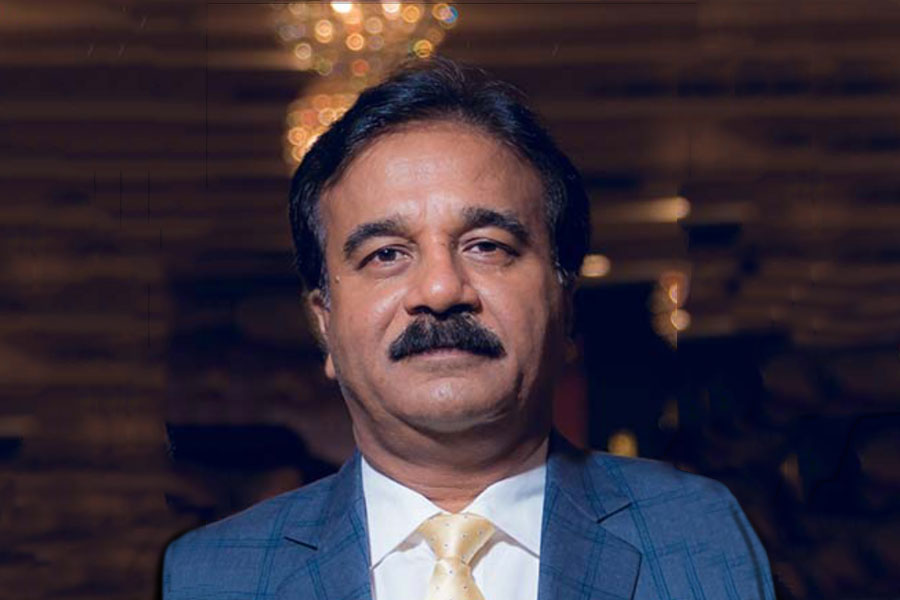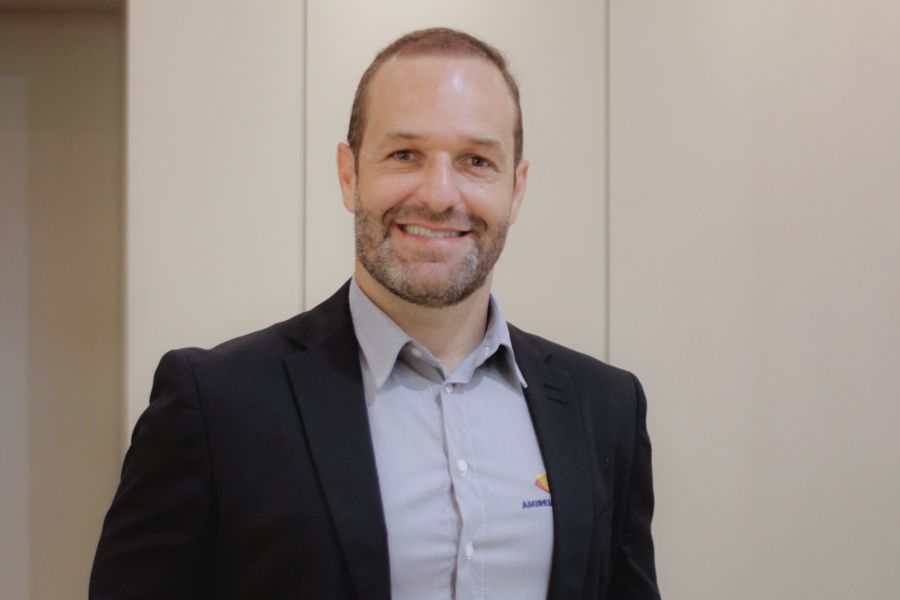PLI & Atma Nirbhar Bharat will support creation of food manufacturing champions
Vijay Agarwal, Director Exports, Bharat International, PANSARI Group, shares the inspiring success story of his company in the export market. He is confident that good hygiene practices, environment-friendly packaging & strict adherence to timelines will make the Indian F&B industry a force to reckon with

IBT: How would you describe the journey, vision, and key achievements of Bharat International Pvt Ltd?
Vijay Agarwal: Bharat International Pvt Ltd is the export arm of Pansari Group, a leading manufacturer of a huge variety of cooking oils, rice, flour, and spices from India. It is enriched with over 60 years of experience in the industry and a production capacity of 700 metric tons per day.
Our products, sold under brands PANSARI, PURTI, OREAL, TAPAS AND SHASHA, are primarily placed in leading B2B/B2C supermarkets/modern stores like METRO Cash-n-Carry, LOTS (Macro-Thailand), SPAR, MORE, V-Mart etc. as well as online portals like Amazon, Big Basket, PayTM Mall, UDAAN, Grofers etc. We are also leading suppliers to various Central/State Government organisations like central police canteens, Kendriya Bhandar, Nafed, Biscoman etc. We also customise a large variety of oils for big institutions like ITC, Nestle, Parle, Raja Biscuits, Anmol Biscuits, Chaudhary group (CG, Nepal) etc. Besides this, we are also doing private labelling for the Indian government, Grofers & many other big brands.
After serving the domestic market for six decades, we have diversified into exports under the name “Bharat International Pvt Ltd” (BIPL) in August 2018 & in a short span of time, BIPL has made its presence felt in 42 countries. We want to actualize a new world – where health, lifestyle, economy, ecology & diverse societies prosper in tandem with ethics, empathy & care.
IBT: To what extent have you managed to penetrate the international market since the launch of the export division?
Vijay Agarwal: We are there in the domestic market since long & we ventured into global exports in August 2018. In less than 3 years, Pansari/BIPL has marked its presence in 42 countries. We can say that globally, we have just started and still have many miles to go.
We are currently exporting our products to South America, Canada, USA, Australia, New Zealand, Hong Kong, Singapore, Malaysia, Nepal, Poland, Czech Republic, Germany, Bosnia, Russia, Ukraine, Middle East (Gulf countries) & various African countries apart from private labelling for many other exporters.
IBT: What are the key ingredients for success in international markets in your view?
Vijay Agarwal: We at PANSARI, strongly believe that “success doesn’t come from what you do occasionally. It comes from what you do consistently.” Thus, we believe that strict quality control and consistency in customer service are key ingredients for success in the international market. Towards this end, efforts are made for constant monitoring right from procurement of raw material to the supply of finished products to the customer.
Further, our quality controllers ensure that the products are manufactured from fresh and good quality raw materials. Strict tests on various parameters are conducted to ensure that the products are of international quality, safe and last for a prolonged period for consumption. At the same time, proper care is taken to ensure that these products are packed under safe and hygienic conditions.
IBT: What are the key lessons from the COVID-19 pandemic? How have you adapted and realigned your business model?
Vijay Agarwal: Margaret Drabble, an English novelist, once said that “when nothing is certain everything is possible.” The pandemic and the resultant lockdown bought about uncertainty in how business is done. Questions such as how to reach the customer and how to find what they need suddenly grabbed the limelight.
However, this also about how innovative thinking caps come into play. International trade fairs began to be held online! Surprisingly, there were more buyers into play now since this didn’t involve travel. The amount saved in travel expenses was now utilized for export promotion online via webinars and zoom meetings. It resulted in more exposure and better orders from new countries.
Domestically, we put up online sale portals with free home delivery service during the lockdown. If the customer couldn’t’ come to us, we went to them. We hired Pansari delivery vans to visit populous localities on various weekdays to serve our loyal clientele at their nearest locality. At the same time, we realized that no calamity is above humanity. We put this notion in our minds and ensured free food for the underprivileged localities in our city; this gave us extra space in the hearts of our loyal customers and taught us the value of sharing is caring.
Since we have a highly automated plant, we did not face labor problems like other industries. However, initially, the Lockdown created raw material & packaging material shortages from our vendors, but since our products were in the list of the essential services, we were able to overcome these problems through the Government’s help.
IBT: What advice would you like to offer to young entrepreneurs on managing risk, coping with failure and leadership?
Vijay Agarwal: My advice to youngsters would be to remember that slow and steady wins the race. One step at a time will take you further than nine. Risk management, too, comes naturally if one is not running recklessly. As far as failure goes, Henry Ford once said that “failure is simply the opportunity to begin again, this time more intelligently”. We need to see failure in a different light… as a teacher maybe. Life is a learning process, there’s no gain without pain.
IBT: How do you view India’s level of competitiveness in your sector, and how can it be enhanced?
Vijay Agarwal: Good hygiene practices, environment-friendly packaging & strict adherence to timelines will make the Indian F&B industry a force to reckon with. The government has announced schemes such as PLI and Atma Nirbhar Bharat. These will support the creation of global food manufacturing champions commensurate with India’s natural resource endowment and support Indian brands of food products in the international markets
IBT: What role can FTAs play? How can market entry barriers be eased for Indian exporters?
Vijay Agarwal: A free trade agreement is a pact between two or more nations to reduce barriers to imports and exports among them. Under a free trade policy, goods and services can be bought and sold across international borders with little or no government tariffs, quotas, subsidies, preferences, or prohibitions to inhibit their exchange. India has numerous FTAs in place and it has helped Indian exporters in a big way. Signing More FTAs will ease more barriers for Indian exporters.
Vijay Agarwal is Director Exports at Bharat International, the export arm of Pansari Group. He is leading a team of professionals involved in marketing & packaging as per international standards. The company has been supplying goods to many big brands across the globe through private labeling. It has been able to mark its presence in 42 countries in less than 30 months, since the launch of the export division in Aug 2018. Vijay Aggarwal is MSc, Mtech (IT) & MBA.
This interview is a part of TPCI’s Connect initiative













Leave a comment